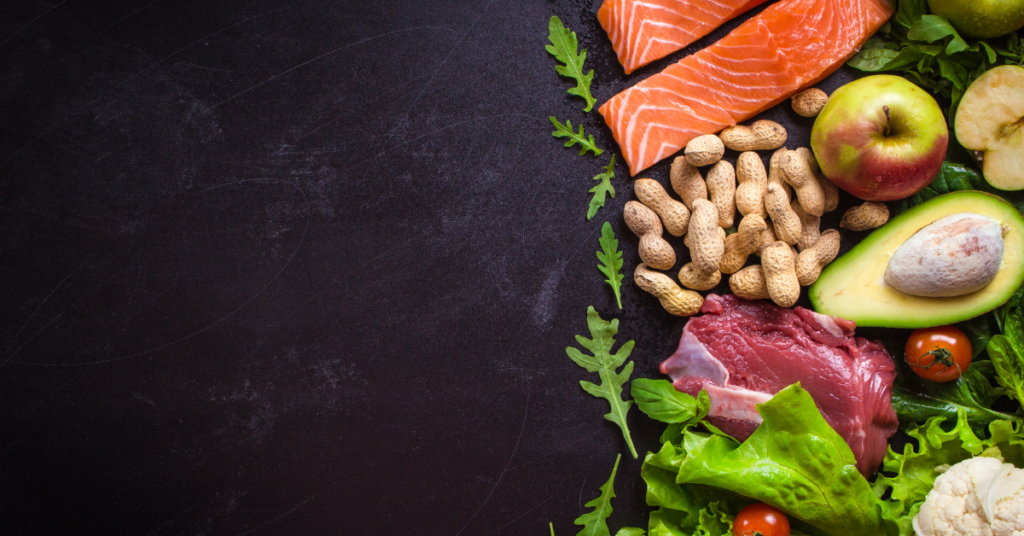Polycystic ovary syndrome (PCOS) is an endocrine system disorder that affects millions of women in the US. For those diagnosed with PCOS, life can be less than ideal with complicated symptoms that can affect fertility and no real cure for the condition.
In addition to impacting fertility, physical appearance and overall health, PCOS may contribute to chronic conditions like heart disease, diabetes, hypertension and even uterine cancer. Managing your overall health helps with many PCOS symptoms and related risks, and maintaining your overall health often begins with your diet.
What is PCOS?
A brief explanation of PCOS may help you understand why diet has such an impact. PCOS is a hormonal imbalance caused by an overproduction of the male hormone, or androgens. This, in turn, causes complications with the menstrual cycle and regular ovulation. Some of the most common PCOS symptoms include:
- Excessive hair growth on abdomen, chest, back, and face
- Irregular or absent periods
- Dark skin on neck, below breasts, and under arms
- Skin tags on neck and underarms
- Infertility
- Excess weight
- Insulin resistance
Inflammation and PCOS
Because women with PCOS don’t fully ovulate, their periods are irregular. The ovaries fill with cysts (polycystic) and the uterus doesn’t shed the lining each month as it should. This results in an inflammation that spreads throughout the body.
Inflammation is both a cause and a symptom of PCOS. There is a low-grade inflammation present in many of those with PCOS, with long-term low-grade inflammation contributing to the excess production of androgens. Although doctors aren’t sure of the reason behind the initial inflammation, they suspect excess weight, especially around the abdomen, as well as insulin resistance that’s usually associated with PCOS.
Why Does a PCOS Diet Matter?
Insulin resistance is especially common in those with PCOS, causing a build up of fat cells and increasing the risk for diabetes. The best way to counter this condition before it gets out of control is through a healthy diet.
A combination of healthy diet and exercise is often prescribed for prevention of heart disease, hypertension and diabetes, and should also be adopted for lifelong health and wellness. Most doctors recommend the Mediterranean Diet as it offers a huge variety of foods from different categories making it far easy to stick to for the rest of your life.
Fad diets and quick weight loss fixes are often temporary, and you aren’t changing your habits for a summer bikini body. What you are doing is addressing a health issue before it gets out of control.
The Best Foods for PCOS
Regular exercise, healthy foods and lifestyle changes to control your weight are the foundation of a plan for controlling your PCOS. Making the right choices for your diet means staying away from highly processed and convenience foods, fast food and any prepackaged meals. Here are the best foods to eat for PCOS.
- Omega rich foods (salmon, tuna, mackerel and trout)
- Beans and legumes as a source of protein instead of meat
- Leafy greens (leaf lettuce, kale, spinach, escarole and endive)
- Non-starchy vegetables (broccoli, cauliflower, tomatoes, peppers, mushrooms, snow peas, celery, fennel and summer squash)
- High fiber fruit (berries, apples and citrus)
- Whole grains (oatmeal, bulgur, brown rice, barley and quinoa, along with whole grain pasta and breads)
- Olive oil to replace all fats like butter
The good news is you can enjoy more than just a salad on the Mediterranean Diet! You can dine on grain bowls topped with your favorite veggies and maybe some salmon, tofu or beans, or a pasta or asian-inspired noodle dish. Get creative and you’re sure to love this way of eating.
Foods to Avoid With PCOS
There’s usually no one food that causes your PCOS. In fact, doctors can’t really find an exact cause but they all agree diet is key to controlling your symptoms. Some foods cause a spike in blood sugar that may aggravate your symptoms and put you at an even higher risk for diabetes. In order to bring your symptoms and PCOS under control it’s essential to prevent inflammation in your body. The foods listed below have a proven connection to inflammation:
- Highly saturated fats (butter and margarine)
- Fried foods (French fries, doughnuts, snack foods like potato chips and any deep-fried fish or chicken)
- Processed meats (hot dogs, deli meats and sausage)
- Red meat (burgers, roast beef and steak)
- Processed desserts and snack foods (cakes, cookies, pie and candy)
- Instant oatmeal, sugary cereals and store-bought granola
- Sugary drinks (sodas, juice drinks, sports drinks, sweetened tea and especially that daily “pumpkin spice latte with extra whip” or similar “coffee” drink)
- White rice and white flour foods (pizza crust, rolls, bread and certain pasta)
- Alcohol in any form (cocktails, mixed drinks and beer)
Eating Healthy Offers Many Rewards
Maintaining a healthy way of eating brings many lifelong rewards. Your risk for certain diseases, including some cancers, goes down along with your cholesterol, blood pressure and blood sugar. Eating as clean as possible and as close to the source as you can may help you lose weight, lessen inflammation, balance your hormones and restore ovulation.
One thing you may want to do is familiarize yourself with low-glycemic index foods. There are books available that explain the glycemic index and provide a list of specific foods and their numbers/where they fall on the glycemic index.
Together We Can Solve Your PCOS Problems
There is no “magic bullet” when it comes to controlling PCOS but a healthy, clean way of eating does help. We can also help at Halo Fertility. We’ll work with you to establish a program to handle your PCOS and offer options to treat your infertility. Contact Halo Fertility today.







